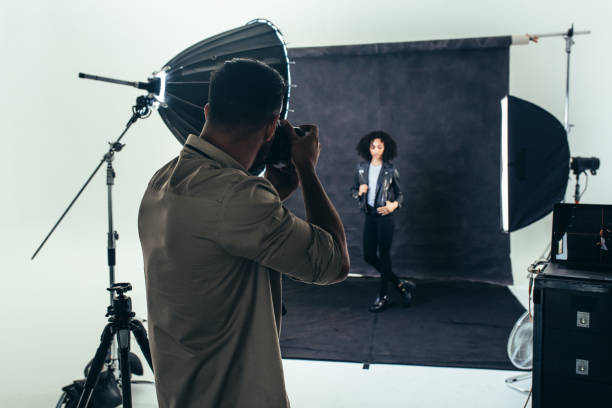Starting a Photography Business
If you are thinking of starting your own photography business, there are a few things you should do first. Make a business plan, research the competition, build up your customer base, and get good equipment. Once you have these basics down, you can start to create amazing photos that will bring in customers and make you money!
What is a Photography Business?
Starting a photography business can be a rewarding experience, but it’s not easy. graphicdesigneye.com here explains some tips to help you get started:
- Research your industry. Familiarize yourself with the trends and conventions of your chosen field, so you know what to expect from clients and competition.
- Get organized. Start by creating a portfolio of your work and setting up an online shop or gallery to display it. This will give you an initial platform from which to market your services and attract potential customers.
- Create high-quality products. In order to stand out from the competition, make sure all of your images are top-notch quality—no one wants low-quality prints! Also, be sure to include information about your process and pricing in each piece of content you produce, so potential buyers know what they’re getting into before making a purchase.
Tips for Starting a Photography Business: How to Choose the Right Location, Equipment, and Pricing
Starting a photography business can be exciting, rewarding, and daunting all at the same time. Here are some tips to help you get started:
- Be realistic about your expectations. A photography business is not easy – it takes a lot of hard work and dedication to make it successful. If you’re not prepared to put in the effort, then you should consider another career choice.
- Choose a location that’s conducive to your business goals. Your studio should be comfortable and attractive with enough space for both you and your clients. Consider whether there’s any space available in an existing business or if you’ll need to start from scratch.
- Choose the right equipment. You don’t need an extravagant studio full of high-end equipment to start shooting photos – in fact, you may find that cheaper equipment is more than adequate for starting out.
Marketing Your Photography Business: A Comprehensive Guide
Starting a photography business can be exciting and rewarding, but it’s not easy. There are a lot of factors to consider, from financial planning to marketing strategy. This comprehensive guide will walk you through the entire process, from beginning to end.
Clientele and Services: How to Attract and Serve Customers
Starting a photography business can be an exciting and rewarding experience. However, it is important to know your target market and what services they are looking for before you start advertising or serving clients. Choosing the right clients and developing mutually beneficial relationships with them is essential to a successful photography business. Here are some tips for attracting and serving customers:
1) Know your target market. Not all potential clients are created equal, so it is important to research who your ideal clientele is before starting a photography business. This will help you target your advertising and service offerings appropriately.
2) Develop relationships with your target market. Building relationships with your clientele is key to success in any business. Make sure you offer value and provide consistent customer service. If you focus on providing the best possible product and service, most clients will return time and time again.
Financing a Photography Business: Options and Strategies
Starting a photography business can be an exciting and fulfilling experience, but it requires careful planning and preparation. Here are some key options and strategies for financing a photography business:
- Use personal savings or credit cards to start up initially. This may be the most affordable option, but you will need to be disciplined in paying off your debt as quickly as possible in order to maintain your credit rating.
- Consider finding investors or securing loans from banks or other financial institutions. A loan may be easier to qualify for if you have strong business credentials and a track record of financial stability. Make sure to document all costs associated with starting up your photography business, such as equipment purchases, software licenses, etc., so lenders can understand the full extent of your investment.
What are the benefits?
If you’re thinking of starting your own photography business, here are some key benefits to consider:
- Increased Income: Starting a photography business can be a very lucrative venture. Depending on your skills and level of expertise, you could easily see your income grow significantly with the right marketing and promotion strategies in place.
- Freedom and Flexibility: With a photography business of your own, you’ll be able to work when and where you want. You won’t need to conform to anyone’s schedule or work conditions – this is YOUR career, after all! Plus, you’ll have complete creative control over what you photograph and how you present it.
- More Satisfaction: Creating beautiful photographs is an incredibly satisfying process. If you’re passionate about it, there’s no doubt that starting your own photography business will provide you with the ideal environment for achieving success.
How will you make your photos available to the public?
Starting a photography business is a difficult task, but with the right planning and execution, it can be an incredibly rewarding experience. Here are some tips for getting started:
- Choose the right platform. There are many different ways to make your photos available to the public, and it can be tough to decide which is the best option for you. Consider whether you want to sell prints, stock photos, or license your photos for use on websites and other media.
- Get organized. Having a system for organizing your photos and tracking sales can help you stay focused and organized during your startup journey. Make sure to set up a pricing structure that reflects the value of your work, and develop marketing strategies tailored to your target audience.
- cultivate relationships with clients. Building long-term relationships with clients are essential if you want to succeed as a photographer or business owner.
How much should you charge for your work?
Starting a photography business can be an incredibly rewarding experience, but it also comes with a lot of challenges. Here are some key things to keep in mind when setting your rates:
- When starting out, it’s important to remember that you won’t be able to charge as much as you might think right away. You’ll need to build up your client base and learn what people are willing to pay for your services.
- It’s also important to ensure that you’re charging enough money for the time and effort that you’re putting into your work. Remember that the photography business is typically a very time-consuming venture, so it’s important not to undervalue your efforts.
- Finally, be sure to provide clients with quality service every time they work with you. This will go a long way in building trust and ensuring repeat business.
Who will be your main client base?
Starting a photography business can be an exciting and lucrative endeavor. However, before you begin your journey, you’ll need to decide who your main client base will be.
There are a number of factors to consider when determining your target market. First, what type of photography do you want to focus on? Do you want to shoot weddings? Business portraits? Product shots?
Second, who is your target audience? Are you targeting professional photographers who sell their work directly to clients or amateurs who might post their work online for others to see?
Third, how much money are you willing to spend on advertising and marketing your business? Are you prepared to travel extensively or put in long hours at the studio in order to build a big enough client portfolio?

